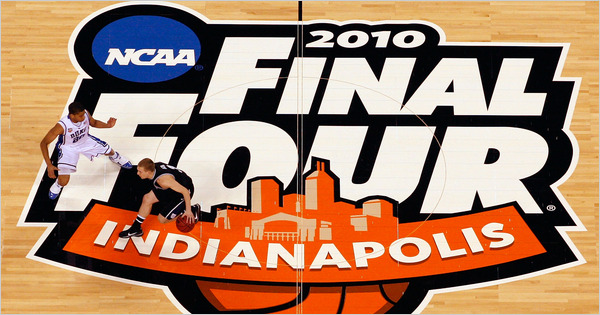Countdown to Armageddon: Is Secession From the NCAA Inevitable?
Posted by rtmsf on July 7th, 2011In the past eighteen months, those of us who love college sports — NCAA Division I sports, specifically — have witnessed a series of near-misses that has threatened to overhaul and redefine the games we care about so dearly. The first shot across the bow was the NCAA’s presumptuous near-expansion to a 96-team NCAA Tournament, an idea hatched with dollar signs in its eyes and only quashed when the public and media covering the sport threatened to go Vancouver at the organization’s Indianapolis headquarters. The second shot was last summer’s conference realignment madness, a tumultuous sequence of fits and starts that didn’t as much change the landscape of the six power conferences as it left everyone shaken by just how brazen and inequitable the system underlying major college athletics has become.
The point of these two events — neither of which resulted in sea changes, mind you — is that, as the power and influence of the alpha dogs of college athletics rises, we appear to be pushing closer to a tipping point where we’ll no longer discuss what almost happened rather than what did happen. The 74 basketball schools (and 66 football schools) that comprise the ACC, Big East, Big Ten, Big 12, Pac-12, and SEC wield the vast majority of everything — dollars, budgets, fans, television contracts, merchandising, etc. And as their profit margins continue to increase, these schools and leagues are correspondingly irked that their governing body, the NCAA, is getting in their way. Whether they see the future of intercollegiate sports as allowing the payment of players or involving agents or full-cost scholarships or third-party enforcement of rules, these power schools know that ideas ultimately favorable to their bottom lines are often at odds with the other 250+ NCAA D-I schools. This is why, despite existing statements to the contrary, many observers believe that the endgame of all of this wrangling will result in a complete secession of the schools from the major conferences to their own separate entity. Call it the Confederate Collegiate Athletics Association, if you like, but don’t ignore the possibility.
Big Ten commissioner Jim Delaney was recently quoted in a piece by Steve Wieberg at USA Today, and it’s abundantly clear that he (and likely the other power conference commissioners) see an Armageddon-like future to blow up the NCAA as his ‘nuclear option.’
Don’t blame structure until you have a group of core presidents, athletic directors, commissioners and coaches who are willing to embrace real change. […] At that juncture, then I think it’s fair to look at how else you get it.
As Jerry Hinnen writes at CBSSports.com, Delaney’s last clause can only mean one thing: If the NCAA members won’t give us what we want (“real change”), we’ll consider other options. And the only realistic long-term option is to take their ball and go home. Make no mistake — this is very much already on their minds. In the same USA Today article, Notre Dame AD Jack Swarbrick stated that he believes such a split is all but inevitable before offering several middle-ground solutions for the intervening period.
But when? Many of the existing television deals with conferences last into the early 2020s, somewhat mirroring CBS/Turner’s massive $10.8B deal to carry the NCAA Tournament through 2024. A decade more worth of frustration with the NCAA and continued haggling over minutiae might be more than enough time to send the power conference schools over the edge. Would this ultimately portend the end of amateur athletics as we know it? And what of the crown jewel of American sports known as March Madness? Will casual sports fans be as compelled to watch the ‘CCAA Tournament’ without the possibility of a Cinderella like Butler, George Mason or VCU crashing the party? Would anyone at all watch the new NCAA Tournament?
These questions needn’t be answered now, but still-green NCAA president Mark Emmert, if he has any sense about him whatsoever, better have enlisted an elite task force of his very best analysts to come up with innovative and creative solutions to what faces his organization. He doesn’t have a coup d’etat on his hands yet, but if things continue along at the same pace and with the same contentiousness that exists now, he may very well become the executive who presided over the destruction of college athletics as we know it.












































When the NCAA forces college basketball to subsidize all of the other sports in college athletics by obtaining 96%-98% of all its revenues from the NCAA basketball tournament, change is inevitable. The conference realignment scenario that nearly happened last year was supposedly being driven by football and football only. How much different might that scenario have been if basketball wasn’t forced to pay the bills for everything else, football included. This revolution to overthrow the NCAA is necessary because the NCAA has held the basketball schools hostage and forced them to pay a ransom for all the other sports. Personally, I say it’s about time this happened.